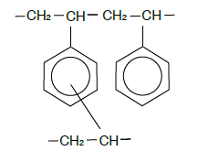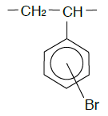212-204-0075
info@pyvot.tech
Small Particle-size Adsorbents
Synthetic Resins of Small Particle-size for Chromatographical Separation
It is well known that smaller size resins are required to obtain higher purity and better recovery in chromatographic separation of pharmaceuticals. Mitsubishi Chemical offers several types of synthetic adsorbent grades in very useful particle size distributions for industrial scale chromatography.
Mitsubishi chemical also offers analytical HPLC packing media MCI GEL™ which has same chemical and physical structure as these grades. Industrial scaling up of separation process is easily attained by using our product line up.
Aromatic Type DIAION™ HP20SS, SEPABEADS™ SP20SS
HP20SS and SP20SS are directly polymerized, small particle size version of HP20. The wide pore polymer matrix provides excellent kinetics and capacity for small biomolecules at both preparative and process scale. They offer nice balance of pressure flow characteristics and true chromatographic fractionation and have also been successfully applied in simulated moving bed (SMB) applications for a variety of small biomolecules. They often compete with bonded silica supports for preparative and industrial applications.
Modified Aromatic Type SEPABEADS™ SP207SS
SP207SS is a small size version of modified aromatic type SEPABEADS™ SP207. It is applied to reversed phase chromatography. The brominated polymeric matrix provides unique selectivity, full pH operating range and long operating life versus conventional bonded silica packing materials used in preparative and industrial applications.
| Grade Name | DIAION™ HP20SS | SEPABEADS™ SP20SS | SEPABEADS™ SP207SS |
|---|---|---|---|
| Chemical Structure |  |  | |
| Shipping Density (g/ℓ-R; approx.) | 670 | 660 | 780 |
| Water Content (%) | 55-67 | 55-65 | 43-53 |
| Particle Size | on 150μm 63-150μm through 63μm 15% max. 70% min. 20% max. | on 75μm 63-75μm through 63μm 30% max. 55% min. 15% max. | on 150μm 63-150μm through 63μm 15% max. 70% min. 20% max. |
| Example of Porosity Pore Volume (㎖/g) Specific Surface Area (m2/g) Pore Radius (Å) | 1.2 560 290 | 1.0 590 110 | |
| Operating Temperature (℃) | 130 max. | 130 max. | |
